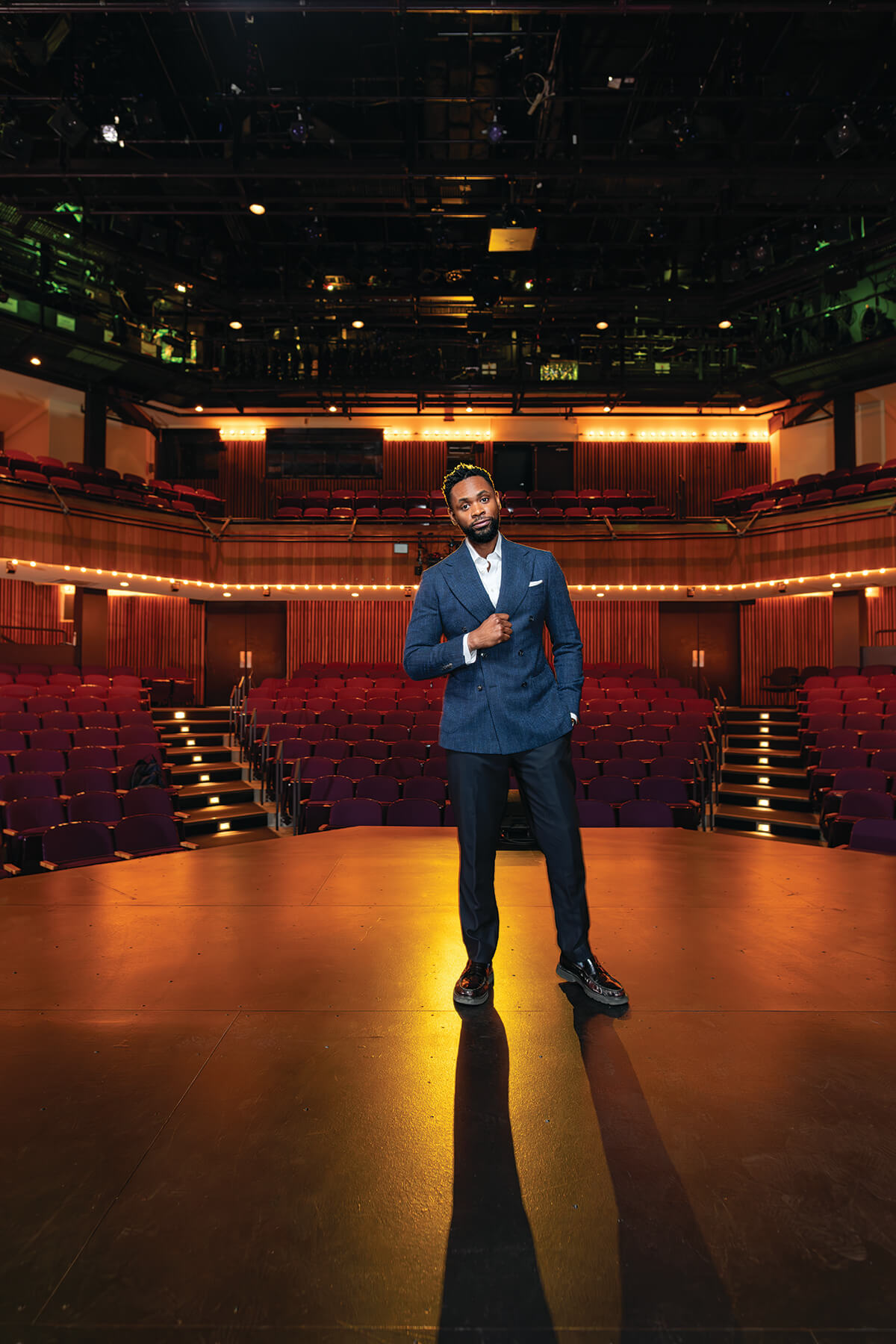Arts & Culture
Stevie Walker-Webb is Already Creating a Lasting Impact at Baltimore Center Stage
In his first full year as the theater's artistic director, Walker-Webb has launched an electrifying lineup of productions and introduced innovative community outreach programs. He’s just getting started.

Stevie Walker-Webb claims to be an accidental theater director. With an undergraduate degree in sociology, he originally considered a career in public service. But his love of theater—its own kind of public service—won out. At only 38, the Texas native is already an internationally celebrated director with an Obie Award and a Tony nomination under his belt.
In his first full year as Baltimore Center Stage’s new artistic director, Walker-Webb has launched an electrifying lineup of productions, including the theater’s two best-selling shows since the 2020 pandemic, and introduced innovative community outreach programs. He’s just getting started.
From your perspective, what makes a great theater experience?
Something between a raucous Southern Baptist church and an Orioles game. I want everyone to feel at home here, and I want everyone to have a good time. Even if we’re looking at something that has heavy subject matter, it can still be held with a kind of buoyancy. I like to say you get more a-has from ha-has. I’m here to laugh you into epiphany.
I’ve been at multiple performances this season, and I can attest that the BCS audiences are raucous. What are you putting in the water that’s making the audience engage like that?
That is the Chesapeake Bay, that’s what that is. I have worked pretty much everywhere, and it’s not like Baltimore. I’m talking to Broadway producers and saying, ‘This is where you want to try out your play. . . . If you want to know if a show is good or not, you need to play it in front of a Baltimore audience.’ We have truly diverse audiences here—and they talk back! We will not give you a standard standing ovation, which I love.
Are there other ways the culture of Baltimore influences your decisions as artistic director? This year, we launched Lab401. We got exactly 99 early-career or first-time local playwrights to apply. Three of them will spend an entire year in residency with us and my hope is to produce one of their plays. I want to launch local writers out of Baltimore. The stories that come out of this city are so rich and powerful and good. People just need to get access to that.
Activism has been an important part of your artistic practice. How is that influencing your work at BCS?
The reason why I wanted this job so badly is because, more than any theater in this country, BCS has a sustained and proven commitment to the community through its social programs. For 40 years, the Young Playwrights Festival has been providing a free playwriting program that goes into Title 1 schools across the city.
This year, we’re also launching the Juvenile Justice Drama Club, where we’ll be in residency at the Baltimore City Juvenile Justice Center working with young people for a full year, and the hope is to create a pipeline for them to have paid internships at BCS. Using theater to improve, empower, and give back to the community—that’s really what I’m here for.
Until now, you’ve spent much of your directorial career traveling to produce a show, and then moving on to the next project somewhere else. So this must be really different for you, being rooted in one place, programming for a specific community long-term. It’s like you’re suddenly in a marriage with Baltimore.
Yeah, a marriage with a whole bunch of kids! As a traveling director, I would get to create these little culture pods, and then I would go away from them. Whereas now, I get to really grow one—and be grown by it. It’s not six weeks now. It’s six years, or 16 years. It’s however long I’m blessed to be in this position. The commitment to that is really scary, but also super exciting.
Is there one word that encapsulates your intention for your first full BCS season?
I’ll do three words: service, to our community. Joy, in how we work and what we offer. And connection. At some point, “universality” became this dirty word. We’ve become so obsessed with a fear of appropriation of each other’s cultures that we’ve lost our ability to celebrate what makes us similar, what makes us connected. If we can make people feel more connected to the theater, more connected to themselves, more connected to each other? I would sell both of my kidneys for that.